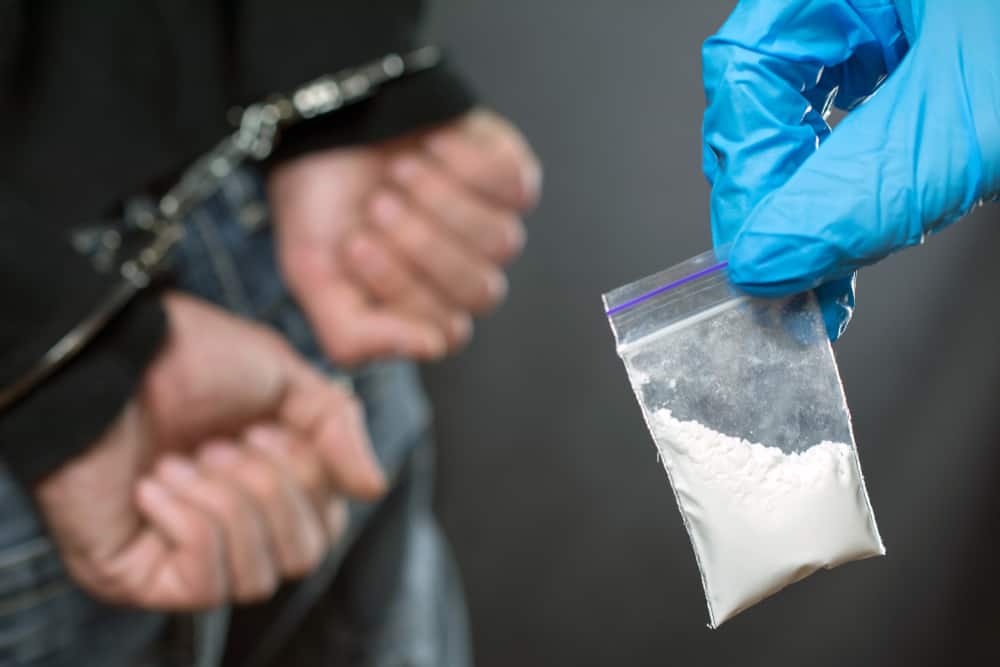
Almost all drug crimes, including possession, manufacturing, and delivery, include the potential for jail or prison time, in addition to substantial monetary fines. Even worse, a conviction will remain on your permanent record, often keeping you from getting a job, renting an apartment, or getting a student loan. You may also face probation, community service, and mandatory drug testing.
A drug crime lawyer in Denton can help. Call the Law Offices of Randall B. Isenberg today to talk to a drug crime lawyer for free: 214-696-9253.
Will I Have to Do Jail Time for a Drug Crime?
With very few exceptions, all Texas drug crimes carry time in jail or prison. Even relatively minor infractions carry six months or more in jail.
The Texas Controlled Substances Act, a part of the Texas Health and Safety Code, lists the various classes of drugs and the crimes associated with each classification. Drug crimes fall under one of three categories: drug possession, drug manufacturing, and drug delivery.
Texas Drug Possession Laws
Possession charges require that you have illegal drugs on your body, in your home, in your car, or in some other location that you control, like your locker or a storage unit.
The charges for drug possession in Denton range from a Class B misdemeanor to a first-degree felony, depending on the substance.
Possession of paraphernalia is a class C misdemeanor.
Texas Drug Delivery Laws
Drug delivery charges involve trafficking drugs (i.e., selling or giving the drugs to someone else). You may hear this offense called drug dealing.
The minimum level of charges applicable for drug delivery crimes is a class B misdemeanor.
Texas Drug Manufacturing Laws
Drug manufacturing charges include cooking, mixing, growing, or otherwise preparing an illegal substance. The police can also charge you if they arrest you with any of the chemicals or equipment required to manufacture an illegal substance.
The penalties for drug manufacturing crimes have the same structure as those for drug delivery, ranging from a class A misdemeanor (for substances not included in penalty groups) to a first-degree felony.
Penalties include:
| Offense | Penalties |
| Class C misdemeanor | $500 fine |
| Class B misdemeanor | $2,000 fine
Up to 6 months in jail |
| Class A misdemeanor | $4,000 fine Up to 1 year in jail |
| State jail felony | $10,000 fine
Between 6 months and two years in state jail |
| Third-degree felony | $10,000 fine
Between 2 and 10 years in prison |
| Second-degree felony | $10,000 fine
Between 2 and 20 years in prison |
| First-degree felony | $10,000 fine
Between 5 and 99 years (or life) in prison |
How Does the State Determine the Charge I Will Face?
When the police arrest you for a drug crime, the prosecutor will consider the classification of drug or illegal substance you possessed, how much you possessed, your past criminal history, and any aggravating circumstances, when determining how to charge you.
The statutes classify illegal drugs and controlled substances into penalty groups. Your charges will depend on the penalty group under which you possessed, manufactured, or delivered drugs.
Penalty Group 1
Opiates and opiate derivatives (e.g., morphine, heroin), cocaine, crack cocaine, methamphetamine, ketamine, fentanyl, and oxycodone
Penalty Group 1-A
Lysergic Acid Diethylamide (LSD or acid)
Penalty Group 2
Hallucinogenic substances such as ecstasy (MDMA) and mushrooms (psilocybin), and some types of stimulant/depressant compounds, such as methamphetamine salts. This category also includes “designer drug” compounds.
Penalty Group 2-A
Synthetic cannabinoids (marijuana)
Penalty Group 3
Stimulants, depressants, and narcotics, such as Ritalin, Xanax, codeine, valium, lorazepam, clonazepam, diazepam, hydrocodone, testosterone, human growth hormone
Penalty Group 4
Narcotic compound with other active, nonnarcotic ingredients, such as opium, morphine, buprenorphine, and pyrovalerone.
Marijuana
The statutes classify cannabinoid (marijuana or marihuana) offenses separately from the above classifications. This includes edibles, oils, and other cannabinoid derivatives.
Aggravating circumstances can increase the level and severity of your charges and penalties. For example, if you used a minor child in the commission of a drug crime, or if you had a child with you when you committed a drug crime, you will face aggravated charges. You will also face harsher penalties if you committed a drug crime in a posted “Drug-Free Zone.”

How Can a Drug Crime Lawyer Help You?
When facing drug crime charges, you have two options. You can plead guilty and accept the penalties that will derail your life, or you can fight these charges and all the negative outcomes a conviction will bring.
Your drug crime lawyer from the Law Offices of Randall B. Isenberg can explain all your options and help you understand what each one may mean for your future.
More importantly, Randall Isenberg and his team can work with the prosecutor to have your charges reduced or even dropped. If the state has not filed charges in your case, we may be able to persuade it not to file, or to file less severe charges.
You may also qualify for either the Denton County Drug Court or the First Offender Drug Program (FODP). These programs help first-time, non-violent offenders get help for their drug problem. In exchange — if you complete the requirements of the program — the court may dismiss your charges or expunge your record.
We can tell you whether your may qualify for a program in Denton County and, if so, handle the application process on your behalf.
If your case must go to court, Randall can identify any potential problems with the evidence and use in as a part of your criminal defense strategy. For example, if the police violated your rights through an illegal search and seizure, any evidence they found may be inadmissible in court.

Consult with a Drug Crime Lawyer in Denton Today for Free
The Law Offices of Randall B. Isenberg understands how frightening and upsetting this process can be. You may feel overwhelmed and alone, but a drug crime attorney can help put your mind at ease and get to work on building the strongest possible defense in your case.
We offer free consultations, so you can get the answers you need to take the next step.
Contact us today at 214-696-9253 to learn more.















